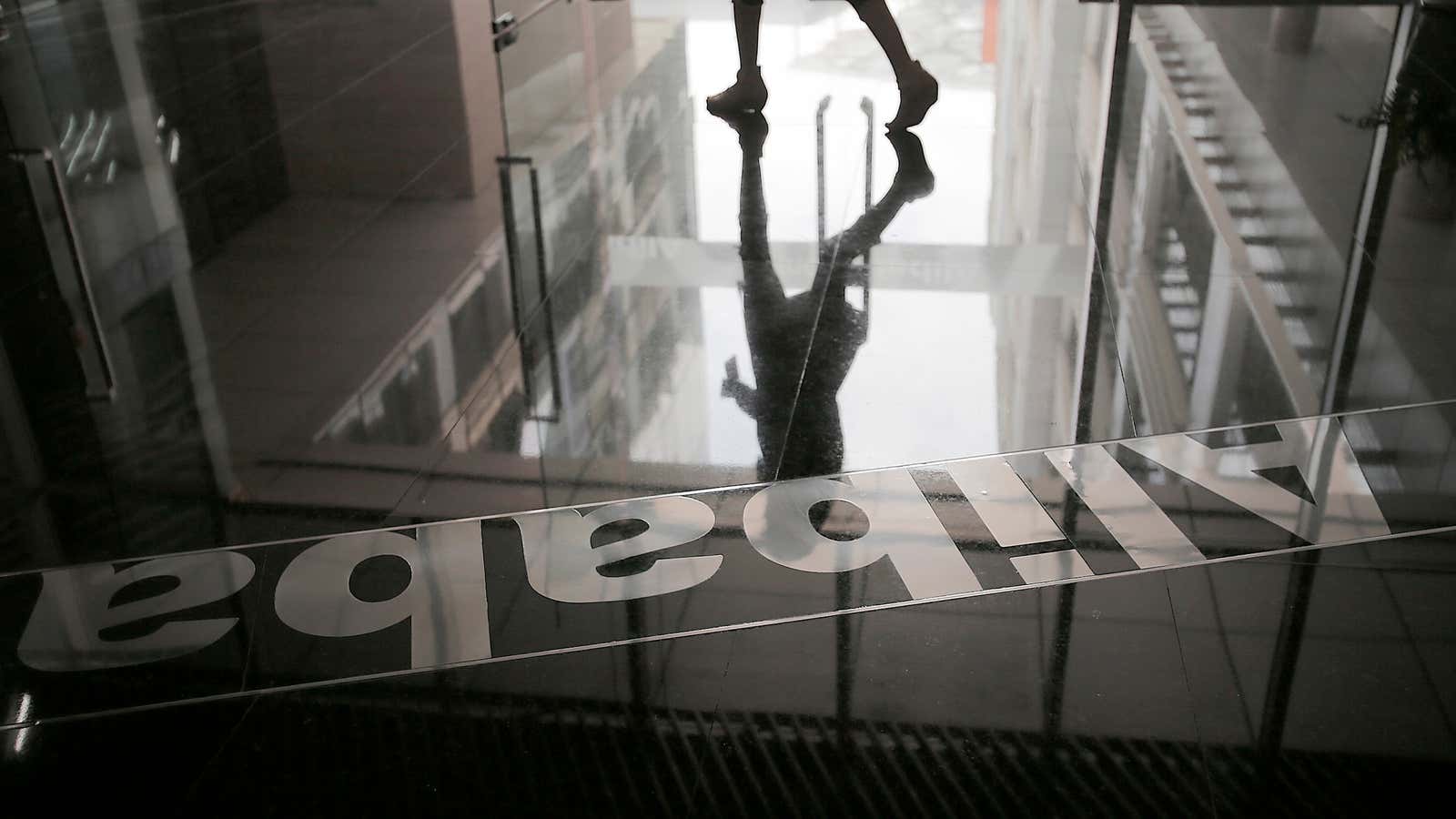Is Yahoo looking to revisit the terms of its deal with China’s largest e-commerce company, Alibaba Group? During the JP Morgan technology conference in May, Yahoo CFO Ken Goldman seemed to hint that it could. He complained about the US taxes Yahoo had to pay on the $7.6 billion sale of half of its 40% stake in Alibaba. And he’s not crazy about Yahoo getting another big tax bill when it sells its remaining Alibaba shares.
“I hate paying taxes. I think if we can find something that is more tax efficient, that would be good,” said Goldman, who added that Yahoo had paid more than $2 billion in taxes on the Alibaba sale (Yahoo had a net profit of about $4.5 billion). “We are going to see ways that we can perhaps work together.”
Yahoo acquired its stake in Alibaba in 2005, and together with another non-Chinese firm, Japan’s Softbank, owned about 75% of the company. But the relationship between Yahoo and Alibaba’s leaders was strained, and the companies spent three years in lengthy negotiations to reduce Yahoo’s stake.
Yahoo wanted to do it in a way that would allow it to avoid paying taxes on the sale. But that structure, known as a cash-rich split-off, proved too complicated, leading Yahoo and Alibaba to agree to a more straightforward sale that came with a hefty tax bill for Yahoo. The agreement also allows Alibaba, which is gearing up for its IPO, to buy back the remaining 20% that Yahoo still owns in Alibaba by the end of 2015. But Yahoo would get taxed again.
Those years of negotiation were marked by turmoil for Yahoo. It went through a few CEOs in rapid succession. Yahoo’s board saw co-founder Jerry Yang and longtime board chairman Roy Bostock depart. Activist investor Dan Loeb, who pushed for changes at Yahoo, and other, new directors joined the board. As a result, few current executives and directors were there during the negotiations. And neither Goldman, the current CFO, nor Marissa Mayer, the current CEO, were there when the Yahoo-Alibaba deal was done.
At the JP Morgan conference, Goldman called the Alibaba deal “unfortunate.” He said it was agreed to when Yahoo was unstable. That and his other comments seem to hint that he might revisit the agreement, and try again to find a tax-free way for Yahoo to divest itself of its remaining Alibaba stake. (Yahoo declined to expand on Goldman’s statements when we asked for comment.)
Yahoo has to be careful if it wants to go down this road again. The reduction of Yahoo’s stake helped pave the way for Alibaba’s upcoming IPO by making Chinese authorities comfortable with Alibaba’s ownership structure. And Alibaba’s IPO is one reason for the recent rise in Yahoo’s stock price. While some think the company could be valued at $100 billion, a $65 billion to $70 billion is probably more realistic, according to analysts. Either way, it’ll be a windfall for Yahoo. Companies always like to pay less tax, but Yahoo needs to make sure it doesn’t go down a rabbit hole again, and eliminate the benefits it’s already received from the Alibaba deal.
